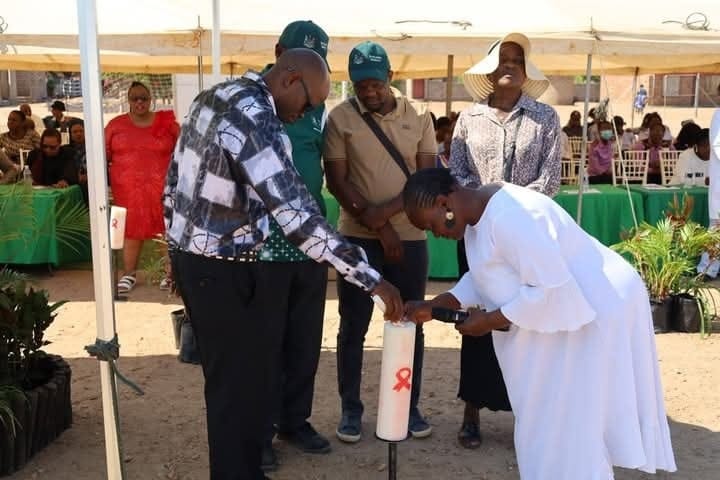South Africa is grappling with a critical issue in its fight against HIV, as over 1.1 million people who tested positive for the virus have gone untraceable in the healthcare system. These individuals, no longer receiving antiretroviral therapy (ART), are disengaged from essential treatment programs, posing a significant threat to both their health and the nation’s HIV control efforts.
This urgent situation was spotlighted during the Ba-Phalaborwa Local Municipality’s annual AIDS Candlelight Memorial on May 8 at the Humulani Try Again Sports Ground, Limpopo. The event, which honored those lost to HIV/AIDS and showed solidarity with the living, emphasized the need to reconnect these individuals to vital healthcare services.
Dr. Sello Rasello, CEO of Maphutha Malatji Hospital, stressed the severity of the issue in the Mopani District, where approximately 48,000 people—5% of the national total—have gone missing from treatment. “Our goal is to locate these individuals by the end of the year,” Dr. Rasello stated. “Reintegrating them into care is crucial to curb the spread of HIV and improve public health outcomes.”
Dr. Rasello also called for collective community involvement in locating and re-engaging these patients. “This is not just a medical issue; it’s a community responsibility. Everyone has a role to play,” he emphasized.
Ba-Phalaborwa Local Municipality Mayor Merriam Malatji reiterated the importance of ART in managing HIV and helping individuals live long, healthy lives. “We continue to stress the need for consistent adherence to treatment. ART is a proven tool in controlling the virus, and we urge all residents to prioritize their health,” she said.
Mayor Malatji also addressed the rising concern of gender-based violence (GBV) in the municipality. She called for unity against violence, urging the community to promote peace, mutual respect, and safety for all.
“The increase in gender-based violence is alarming, and we must reject all forms of abuse. Together, we can build a safer, more harmonious community,” she concluded.
The memorial underscored both the progress made in combating HIV and the substantial challenges that remain, particularly in reconnecting over a million individuals who have dropped out of HIV care.



